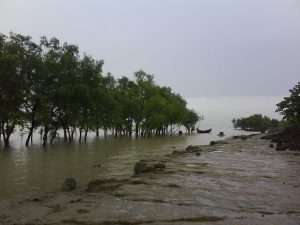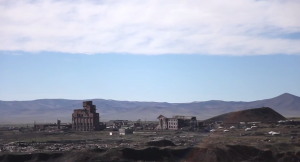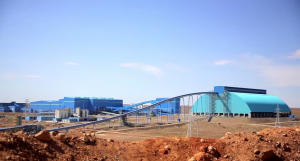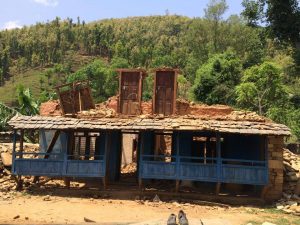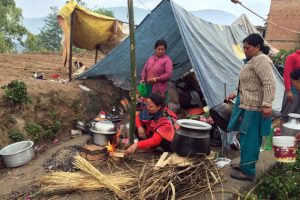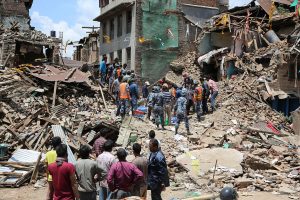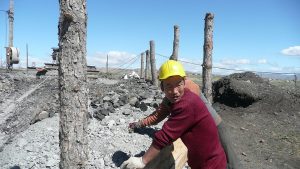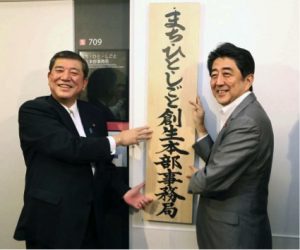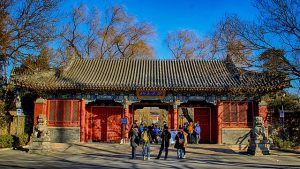Red Star Over Asia: Taking Stock of Xiaomi’s Meteoric Ascent
Memo #339 By Grégoire-François Legault – gregoire.legault [at] alumni.ubc.ca Increasingly, tech products will be “designed in China” as opposed to “made in China.” Xiaomi 小米, a Chinese consumer electronics manufacturer, represents a new era of innovation in China that will increasingly enable indigenous tech companies to compete head-to-head against established firms from the most advanced […]
Migration Crisis on Southeast Asian Shores: Individual or Regional Responsibility?
Memo #338 By Kazi Fahmida Farzana – fahmida [at] uum.edu.my On May 10–11, 2015 some 2,000 new Rohingya migrants from Myanmar landed in Malaysia and Indonesia. Many others are believed to have lost their lives in this desperate journey, while hundreds are still drifting on the high seas. By seeking asylum on the shores of Southeast […]
How the EITI May Become Mongolian, Part 2 of 2
Memo #337 By Christopher Carter – cj [at] cj-carter.com and Dulguun Davaanyam – d.dlgn [at] alumni.ubc.ca In the second part of this video, we examine how the EITI, and more specifically the EITI report, can and has had an impact reducing the negative social, cultural, and environmental impacts of mining by empowering civil society and […]
How the EITI May Become Mongolian, Part 1 of 2
Memo #336 By Christopher Carter – cj [at] cj-carter.com and Dulguun Davaanyam – d.dlgn [at] alumni.ubc.ca As a former Soviet satellite state, Mongolia has experienced a tremendous transition to free markets and democracy over the past 15 years. Most recently, has been the realization of the country’s vast mineral wealth. In the past decade, foreign […]
After a Massive Earthquake, Rebuilding it Right in Nepal
A Statement from the Institute for Asian Research, University of British Columbia: The Institute for Asian Research at UBC sends its deepest condolences to the people of Nepal in the aftermath of the 7.8 earthquake that struck the country on April 25th, 2015. UBC has many connections with Nepal, and many faculty, students, and alumni […]
Nepal: The Long Road to Recovery
A Statement from the Institute for Asian Research, University of British Columbia: The Institute for Asian Research at UBC sends its deepest condolences to the people of Nepal in the aftermath of the 7.8 earthquake that struck the country on April 25th, 2015. UBC has many connections with Nepal, and many faculty, students, and alumni […]
Amidst its Tragedy, Nepal’s Strategic Dilemma
Memo #333 By Tsering Shakya – tsering.shakya [at] ubc.ca Although previous studies have argued that international/donor agenda drives disaster risk reduction (DRR) in Nepal and strengthens the role of NGOs vis-à-vis the government, there are clearly differences in international influences by country, a fact made notable in the cases of China and India. Nepal’s fear […]
Avoiding the Resource Curse in Mongolia
The Extractive Industry Transparency Initiative (EITI) in the Land of the Blue Sky Memo #332 By Christopher Carter – ultericommunications [at] gmail.com and Dulguun Davaanyam – live.environmentally.friendly [at] gmail.com Since moving out of the Soviet orbit, Mongolia has experienced tremendous economic and political change as it continues to move towards a free market and democratic […]
Regional Vitalization: Japan at the Crossroads
The Heisei mergers are long done and Japan has turned to vitalizing its rural economy. The question is whether such a policy will work. Memo #331 By Anthony Rausch – asrausch [at] cc.hirosaki-u.ac.jp The current focus on regional vitalization by the Abe Cabinet reflects Japanese concern with its dropping rural population and Tokyo-centered economy. The […]
A New Look at Chinese Liberalism among Elite Students
Memo #330 By Fen Lin – fenlin [at] cityu.edu.hk Peking University, the traditional locus of Chinese liberalism, seems to be yielding this role to China’s economics and financial universities. A 2012 survey, conducted among six elite universities in Beijing and Shanghai, revealed that only 14% of Peking University students described themselves as liberal reformists, the lowest […]

